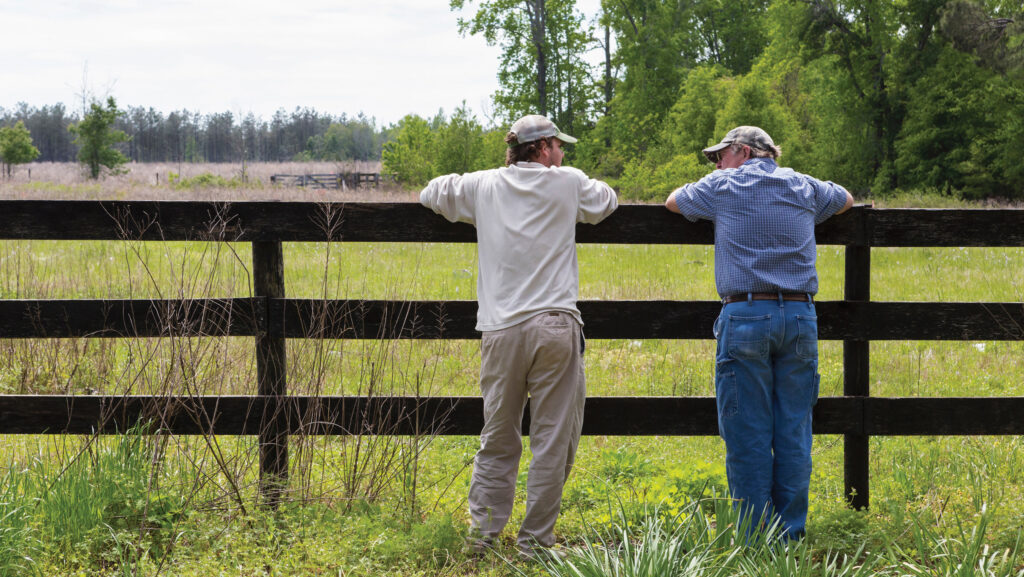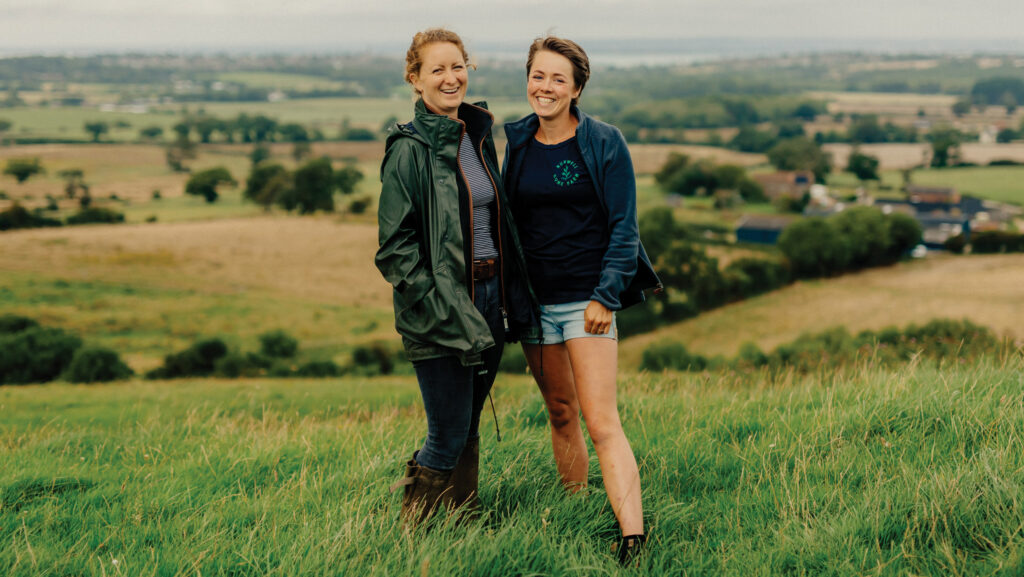Workshops to help improve tough farm business conversations
 © Adobe Stock
© Adobe Stock Better communication is the focus of an upcoming series of workshops for beef and sheep farmers.
Led by Canadian family farm coach Elaine Froese, the aim is to give these farmers the tools to talk about difficult issues and decide on the future direction of their businesses.
See also: 4 successful livestock collaborations to learn from
“I often say procrastination and conflict avoidance is killing agriculture,” says Elaine, whose family farms in Manitoba.
She, instead, tackles the issue head-on by giving farmers skills to confront “the bull in the middle of the farm that everybody knows is there, but nobody is willing to talk about”.
What is needed, Elaine says, is for farmers to “grab the bull by the horns” and ask for what they truly want on their farm.
Her workshops (see “Discuss the undiscussabull™️ dates”) are designed to give farmers tools to communicate more effectively and are running as part of AHDB’s Roots to Resilience programme.
“I think what I bring is a way of thinking, a mindset, to say start with the culture first: how are you behaving with each other, are you appreciating each other, is this a happy workplace, is it an attractive workplace?”
In addition, the shifting landscape of agriculture means farmers are going to have to “really focus on how [they] can be profitable”, she says.
“Your best tool for navigating that is combining your resources and your skill sets to find out what the opportunities are on your farm.”
Discuss the undiscussabull™️ dates
- Carlisle Monday 21 October
- Harrogate Wednesday 23 October
- Telford Friday 25 October
- Huntingdon Monday 28 October
- Exeter Wednesday 30 October
Course and venue details are at ahdb.org.uk/roots-to-resilience
Farm kitchen insights
Elaine studied home economics before working for Manitoba Agriculture, facilitating tough conversations for farming families.
She went on to train in coaching, conflict resolution and mediation and runs the Farm family harmony podcast.
“From my work at farm kitchen tables, I started to understand that the piece missing for farming families was to have a firm foundation in positive conflict behaviour and communication, so that they could make good decisions,” she says.
“We need to express our emotions, create solutions, reach out to each other, adapt and be able to put ourselves in the other person’s shoes – those are all very positive behaviours,” she explains.
“Part of my quest is to show them that conflict is not bad: conflict is great because it gives you clarity of expectations.
“But you have to focus on these positive behaviours, not negative ones like winning at all costs, or avoiding conflict.
“Some farmers, when they get in a pickle, or don’t get their own way, stomp off to the back paddock, but that’s not helping create solutions. [They need to] attack the issue without attacking the person.
“I want them to understand that they have the capacity to make things different – but it’s going to take some intentionality to get there.”
Farms that meet regularly are 21% more profitable, says Elaine, citing research by Dr David Kohl of Virginia Tech US in the late 1990s.
Furthermore, families that are strong are the ones that communicate well, stay connected to their community, and celebrate the wins, she adds, pointing to another study by psychologist Dr Nikki Gerrard.
Communication tools
During the one-day workshops (which will also cover issues around succession, including fairness) farmers will be able to text their questions privately to Elaine.
She will respond to these openly during the day, but points out: “This will be safe and respectful because nobody will know [who sent them].
Attendees will have the chance to complete a pre-registration online assessment called a conflict dynamic profile. This will help them become more aware of their positive conflict behaviour, she explains.
“We will also have some 45-minute private coaching slots that can be reserved,” she says, adding that all attendees will go home with an implementation guide, which includes 56 pages of tools.
Case study: Francesca Cooper and Holly Fallick
Farm facts: Nunwell Estate

Francesca Cooper and Holly Fallick © Peter Flude
- 162ha in share-farming agreement with the Nunwell Estate, Isle of Wight
- Additional 81ha in near future
- 100 head of cattle including 35 suckler cows
- 100 growing pigs and eight sows
- 300 laying hens
- Direct sales
Childhood friends Francesca Cooper and Holly Fallick grew up together on the Isle of Wight.
New entrants to farming, they left careers in land agency and human nutrition, respectively, to enter a share-farming agreement three years ago with Robert Oglander of the Nunwell estate on the island.
“Communication has always been in the forefront of our minds because we run a business where we are collaborating,” says Francesca, who attended AHDB’s Roots to Resilience course last December. “
Already being friends has been a blessing in one way, but we’ve had to learn how to actively communicate, rather than just relying on the fact that we are friends.”
The pair started the business with cattle, pigs and laying hens on 49ha (120 acres).
They made a five-year business plan and agreed on a strategy that gave them space to experiment and grow organically.
They took on more land and are about to expand again – a process of rapid growth that Francesca says she and Holly knew would give them extra stress.
“We knew we would need to develop the way that we communicate – and that’s what we’re working on now,” she says, adding that working with a close friend has its own particular challenges.
“I think it’s understanding that communication isn’t just talking or spending time together, it’s sometimes actually sitting down and investing the time to go a bit deeper and talk about your vision and hopes and dreams,” she reflects.
“When you spend a lot of time with someone, you’re constantly communicating about what you’re doing.
The times when we ran into difficulties, we both assumed we were on the same page because we were talking all the time.”
Resolution
Francesca says she and Holly are trying to put in place regular, more formal, meetings, although finding this hard.
“I think we worry they’ll end up in crisis. But with a business, and especially where there’s collaboration, there’s so much riding on it. If we fall out and it goes wrong, then it’s not just [affecting] us.
“It’s been important for us to step back and recognise that, and be able to work through some of the things we don’t agree on and understand that we have to come to a resolution: you don’t necessarily have to agree on everything for things still to work fine.
“It’s just that you just have to find a way to move forward.”
They plan to use a business coach to help facilitate communication: “You can’t just rely on it being a given,” she adds.
